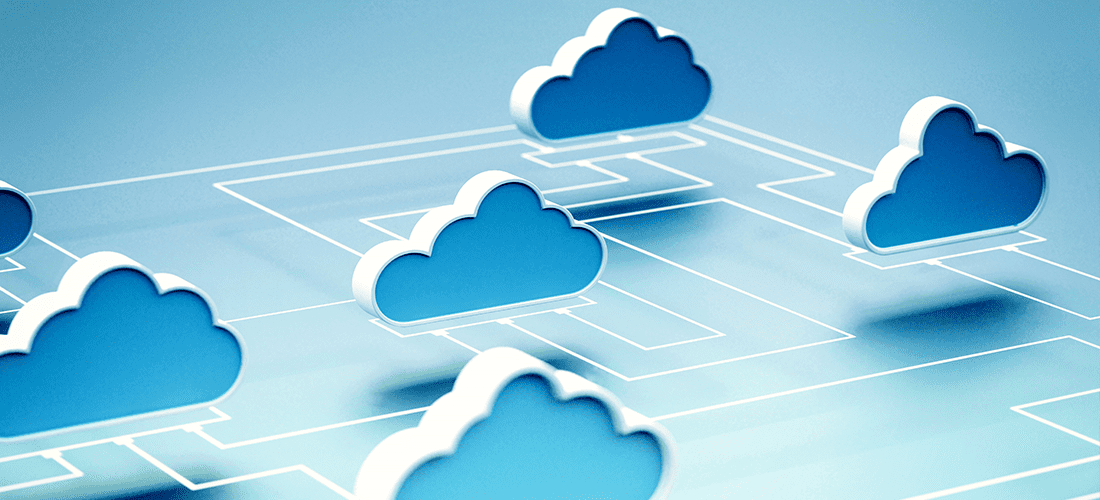
From the U.S. Department of Veterans Affairs to the Department of Defense, government agencies are getting away from old-school systems and moving into the cloud. For local governments, there are numerous benefits to utilizing cloud services, which can help streamline operations, drive down expenses, better protect data, and strengthen business continuity and disaster recovery. Here’s a look at why every local government should be leveraging the cloud.
Benefits of Cloud Services for Local Government
A cloud-based solution such as Software-as-a-Service (applications accessed online, like Google Docs), Infrastructure-as-a-Service (virtualized hardware infrastructure, like storage and servers), or Platform-as-a-Service (hardware infrastructure and software), can provide local governments with the tools they need to operate more efficiently. Some of the biggest potential benefits of moving to the cloud include:
Strengthened Security
A breach has the potential to expose sensitive information to bad actors, or even put operations at a standstill.
Cyber attacks such as ransomware are increasingly aimed at “soft targets” like local governments, labeled as such because their often-antiquated systems make them particularly vulnerable to cybercriminals.
“Using the public cloud for land and vital records systems allows local government offices to take advantage of the huge investments cloud providers make in security and infrastructure protection.”
-Matthew Maclean, Solutions Consultant, GovOS
For many local governments, attempting to match the strength of security measures and data protection offered by cloud storage and computing services in on-premises systems can be prohibitively expensive and labor-intensive, in large part because of the economy of scale.
“Moving to a true native public cloud-based system is a game-changing opportunity for local government,” said Matthew Maclean, Solutions Consultant, GovOS. “Using the public cloud for land and vital records systems allows local government offices to take advantage of the huge investments cloud providers make in security and infrastructure protection.”
Some government agencies utilize private cloud services – which are dedicated to a single organization – in lieu of public cloud offerings for even greater security and control. Another popular option is a hybrid model that uses some combination of private cloud services, public cloud services, and local systems, depending on an organization’s needs.
Increased Collaboration and Efficiency
Some cloud services like GovOS enable employees to access and work on projects from anywhere on any device, as well as simplify collaborations among workers and between government agencies. This increased efficiency can take several forms: documents are more easily shared, information silos and redundant documents are reduced, and transitions to remote work are accomplished more quickly.
SaaS cloud solutions can make local government tasks such as business licensing, which often requires the involvement of multiple departments in the approval process, much easier compared to more rudimentary methods like email.
Scalability and Cost Savings
 Running on-premises infrastructure is costly, particularly in today’s environment where virtually everything – from document archives to services like tax filing – is going digital. Cloud computing enables local governments to be more operationally nimble in response to what are often dynamic shifts in computing capacity needs – such as requests for service from members of the community – as well as data storage requirements.
Running on-premises infrastructure is costly, particularly in today’s environment where virtually everything – from document archives to services like tax filing – is going digital. Cloud computing enables local governments to be more operationally nimble in response to what are often dynamic shifts in computing capacity needs – such as requests for service from members of the community – as well as data storage requirements.
“A truly native cloud-based system provides local government with automated business continuity,” explained Maclean. “This reduces the need for disaster recovery planning, and at the same time, empowers local governments to offer mobile offices for constituent outreach or even remote employee access without costly infrastructure setup.”
With an on-premise infrastructure, scaling up or down in storage and computing capacity is slow and expensive. Cloud computing enables local governments to scale up and down in real-time, potentially resulting in significant cost savings.
Improved Business Continuity and Disaster Recovery
Cloud computing and storage services can significantly aid local governments in business continuity and disaster recovery. Redundancy is one of the most vital elements to protecting data and eliminating downtime from outages or cyber attacks – housing data and running critical digital infrastructure like servers locally without any off-site redundancy is a recipe for disaster.
Local Governments Need to Be in the Cloud
Modern governments need modern solutions to meet today’s challenges. Cloud-based services can help protect sensitive information, simplify projects and collaborations, ensure business continuity in the event of a disaster, and save money.
Looking for a cloud-based solution to transform how your local government operates? From public records management to short-term rental tracking, learn how the GovOS suite of cutting-edge cloud-based solutions enables local governments to work more efficiently, boost transparency, and better connect with residents.









